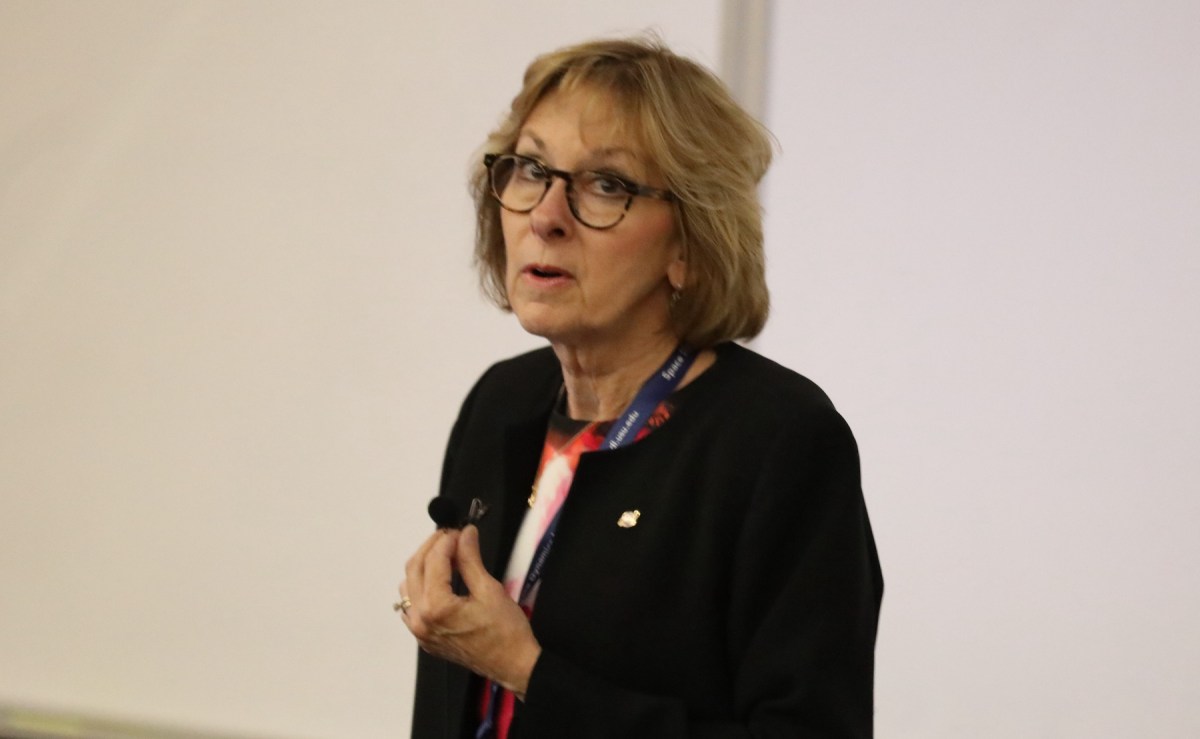LOGAN, Utah — Tight budgets for NASA could provide new opportunities for smallsats that have increasingly demonstrated their capability to perform low-cost science missions.
During a NASA town hall meeting held during the Small Satellite Conference here Aug. 5, agency officials argued that smallsats have become a key part of the overall portfolio of missions the agency uses to study the Earth, solar system and universe.
“Enabled by low-cost access to space, smallsats have revolutionized space sciences,” argued Peg Luce, acting deputy associate administrator for programs for NASA’s Science Mission Directorate (SMD). “We can pack more science into packages smaller than we could have imagined 25 or even 10 years ago.”
She and other NASA officials at the town hall outlined how smallsats have become widely accepted in fields such as Earth science, heliophysics and astrophysics. David Cheney, program executive for heliophysics at NASA Headquarters, noted that the “fleet chart” of missions in that division is now dominated by small satellites. “Heliophysics is leaning very much forward into small satellites.”
Luce argued that smallsats are attractive not just because of the lower costs and faster development times but also the ability to use them conduct missions not feasible with larger satellites, like constellations. “For many science questions, smallsats provide the ideal architecture,” she said. “The ability to develop smallsat constellation missions has led to advances in the way we design missions to accomplish really grand research objectives in space.”
NASA, she said, “has leaned into smallsats as part of a balanced portfolio.”
That portfolio, though, is facing budget pressures as NASA grapples with reductions of about $1 billion for science in fiscal years 2024 and 2025, as well as challenges with some individual programs, like Mars Sample Return. “Across SMD we’re in a budget crunch right now,” Luce acknowledged during the town hall.
Those budget pressures, though, could provide a new chance for small satellites to demonstrate their ability to do quality science at low costs. “I would look at it as an opportunity,” she said when asked if that budget crunch was a threat or opportunity for smallsat programs.
She didn’t elaborate on specific opportunities, but others noted the growing capabilities of smallsats. “We’re able to go bigger and bigger but do it frugally,” said Sachidananda Babu, manager of NASA’s In-space Validation of Earth Science Technologies program, which supports smallsat development. “It provides an opportunity for creativity.”
The focus of the town hall discussion was on existing smallsat missions and opportunities. Luce noted the upcoming launches of two high-profile smallsat missions. One, ESCAPADE, is a pair of smallsats that will orbit Mars to study the interaction of the solar wind with the planet’s magnetosphere. That is scheduled to launch this fall on the inaugural flight of Blue Origin’s New Glenn rocket.
Another is Lunar Trailblazer, which will orbit the moon to scout for water ice. She noted that the mission recently completed a review at NASA Headquarters and remains on track to launch towards the end of the year as a rideshare on Intuitive Machines’ second lunar lander mission.
One near-term milestone involves a smallsat launched earlier this year. NASA flew the Advanced Composite Solar Sail System (ACS3) cubesat in April on a Rocket Lab Electron rocket. The spacecraft has been undergoing tests in orbit before deploying an 81-square-meter soar sail.
That deployment is planned for later this month, said Roger Hunter, manager of the Small Spacecraft Technology program at the agency. Once deployed, ACS3 may become bright enough to be seen with the naked eye. “It is going to be impressive.”
